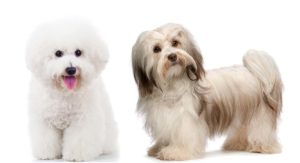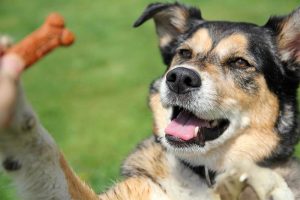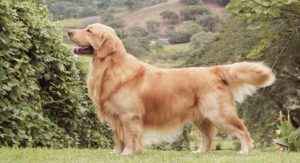A parti Miniature Schnauzer has patches of white fur in their coat. Parti coloring is not recognized by the official breed standard for the Mini Schnauzer. So this coat pattern is somewhat rare for the breed. But a purebred parti Mini Schnauzer is likely to share all the same great […] Read More
Border Collie Chihuahua Mix
The Border Collie Chihuahua mix hybrid designer dog breed is usually created by mixing a male Chihuahua with a female Border Collie. Many people have begun to fall in love with these hyper, adorable dogs. But, without the proper care, they can be quite the handful. The Border Collie Chihuahua […] Read More
From Puppy To Full Grown Beagle
The full grown Beagle is a small hound, weighing 20 – 30lbs and standing around 13 to 15 inches tall. They are friendly, lively and loyal dogs, which makes them a great pet for active homes. You can expect your bouncy buddy to live up to around 12.5 years. Today […] Read More
Great Bernese – Your Great Pyrenees Bernese Mountain Dog Mix
The Great Bernese is a Great Pyrenees Bernese Mountain Dog mix. This is a large dog that has a calm and patient personality, while at the same time being a good protector. They come from working roots, and are built to cope well in harsh climates and form strong bonds […] Read More
Blue Poodle Colors, Breed Traits and Care
The blue Poodle has a uniquely silvered black coat and a loving, affectionate and lively personality. This athletic companion pet and working dog is originally black, but their blue fur fades as they grow older. An adult blue Poodle will look more blue grey than black. Today we’ll share top […] Read More
Are Whippets Good Family Dogs?
Are Whippets good family dogs, or best kept in grown up households only? The Whippet breed has a relatively low profile, but they are brimming with qualities that make them good family dogs. They are affectionate, gentle, adaptable, and pretty low maintenance. I think every family should include a Whippet […] Read More
Havachon – The Havanese and Bichon Frise Mix
The Havachon is a cute crossbreed, combining a purebred Havanese with a pedigree Bichon Frise. These pale coated companion dogs are small, weighing around 12lbs and standing about 11 inches tall. They make ace apartment pets or lapdops, and surprisingly good watchdogs too. This active, trainable dog fits well with […] Read More
Cavachon – Cavalier Bichon Frise Mix
The Cavachon is a Cavalier King Charles Spaniel Bichon Frise mix. They either have one purebred Cavalier parent and one purebred Bichon parent, or are a second or even third generation Cavachon cross. These dogs are small, confident and very affectionate. They are usually small, with long hair, droopy ears […] Read More
Belgian Malinois Temperament Traits
Belgian Malinois temperament makes them great watchdogs and guardians. The breed’s personality makes them a perfect military, service and police dog. They are smart, cooperative, protective, defensive and confident, coming from working herding roots. These brave and loyal dogs are affectionate companions, but their athletic build and energetic nature can […] Read More
Old Beagle: What You Need To Know As Your Dog Ages
Most old Beagles are still puppies at heart. They may not be as fast these days, but they have racked up years of experience and make loyal, placid companions. They will benefit from some tweaks to their diet to give them the nutrition they need. And a few adjustments to […] Read More
Miniature Poodle Traits, Care and Personality
The Miniature Poodle dog breed is hard to beat when it comes to pets. A small, agile and intelligent pup with a low shedding, curly coat, this mini Poodle type has a playful, inquisitive personality and gets on well with people of all ages. Miniature Poodles have a range of […] Read More
Great Pyrenees Temperament Traits
Great Pyrenees temperament is loyal, affectionate, patient and calm. These stubborn, strong willed dogs make excellent watchdogs and guard dogs too. Although they can be aggressive with strangers, they are strongly bonded to their families and very chilled out when in an environment they are relaxed in. They are good […] Read More
Lemon Beagle
The lemon Beagle is rare but not impossible to find. An unusual genetic trait means that unlike the classic tri color dog they have just yellow or tan and white shades on their bi color coat. Today I’ll share some awesome lemon Beagle facts, to help you get to know […] Read More
Border Collie German Shepherd Mix
The Border Collie German Shepherd Mix, or Shollie, is a cross between the guardian German Shepherd Dog and herding Border Collie. They are around 25 inches tall, weigh about 70lbs and live into their teens. Shollies are intelligent working dogs, with very athletic and agile characters who although trainable need […] Read More
Black and White Shih Tzu
Black and white Shih Tzu dogs aren’t as common as brown and white coated dogs, but this color combination is still one of the officially recognised patterns for the breed. And like the rare pure white Shih Tzu, these parti Shih Tzu have quite a distinctive look. However they can […] Read More
Golden Retriever Dog Breed Guide
The Golden Retriever dog breed is medium sized, fluffy, thick coated, floppy eared, big eyed and well tempered. This active, intelligent, working, hunting, therapy and companion dog comes in show and working bred types. They are easy to train, but need lots of exercise and grooming. A historical breed, they […] Read More
Blue Cane Corso
A blue Cane Corso has a gray coat. The exact shade can be light or dark, and even patterned. Blue brindle Cane Coros have tightly arranged, narrow, vertical stripes of gray and fawn in their fur. It’s also within the breed standard for gray dogs to have small white patches […] Read More
Black Husky
Black Huskies have one of the nine standard coat colors accepted for registration and show by the American Kennel Club. They have the same gorgeous temperament as Huskies in better known colors, and prospective puppy buyers need to be careful of breeders who describe their black puppies as being rare […] Read More
The Maltese Dog Breed
The Maltese dog is typically very friendly and energetic for their size. They do well in families and fit into even the smallest apartment spaces. After a good run in the park or a game of fetch, they’ll lay in your lap and snooze the next few hours away. And […] Read More
Miniature Sheltie
A miniature Sheltie is a Shetland Sheepdog, or Shetland Sheepdog mix, which has been bred to be much smaller than average. Just like their bigger cousins, mini Shelties are likely to be smart and energetic, with an innate herding instinct. But the process of making an established breed smaller can […] Read More
- 1
- 2
- 3
- …
- 10
- Next Page »



















